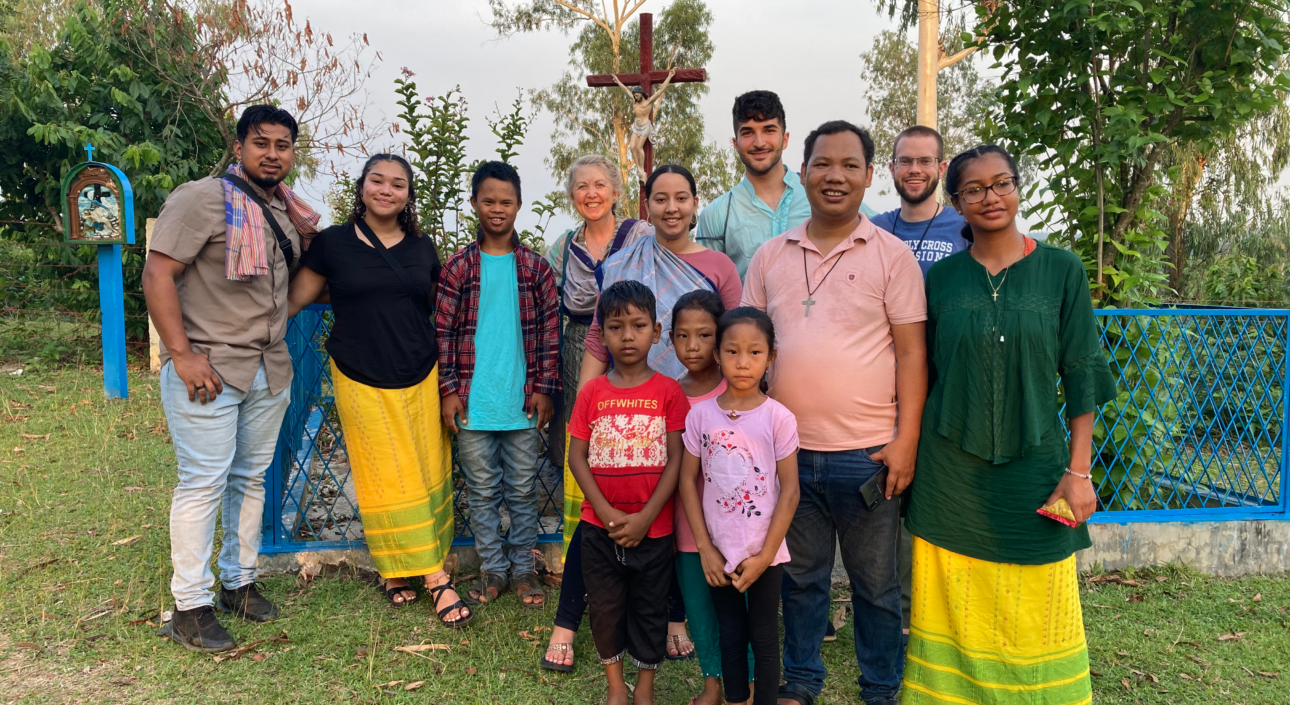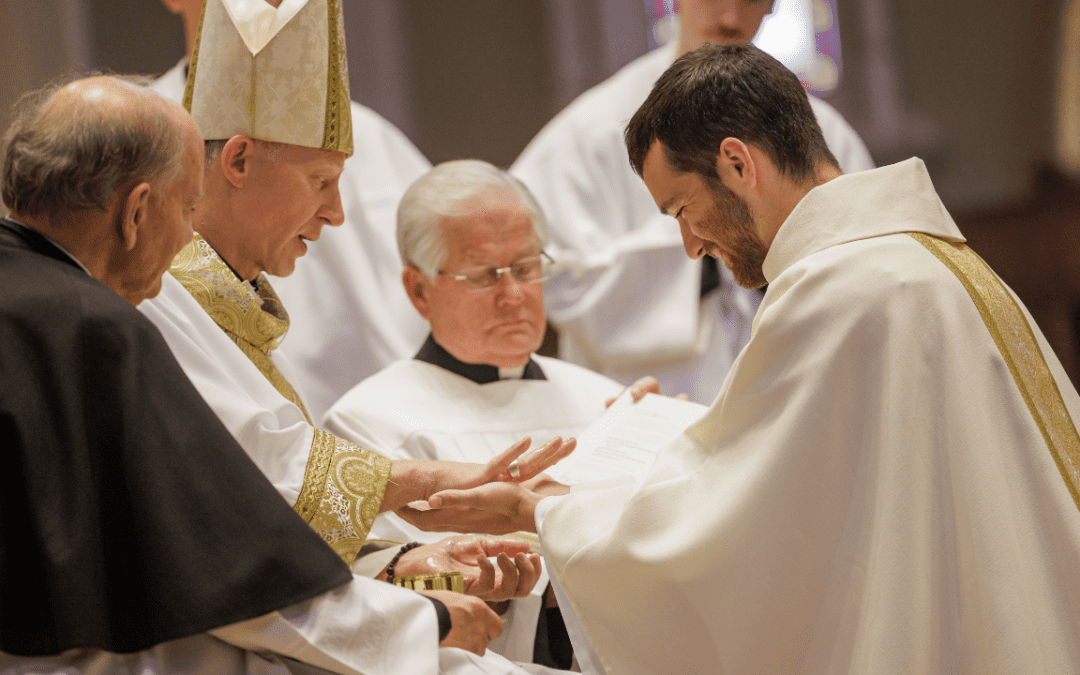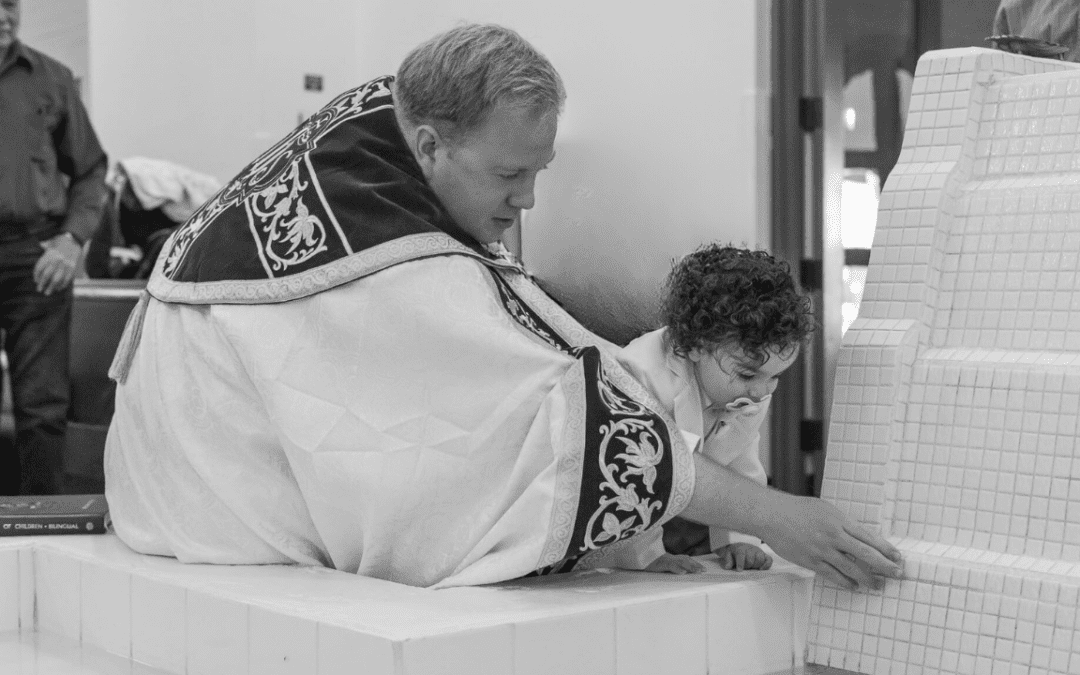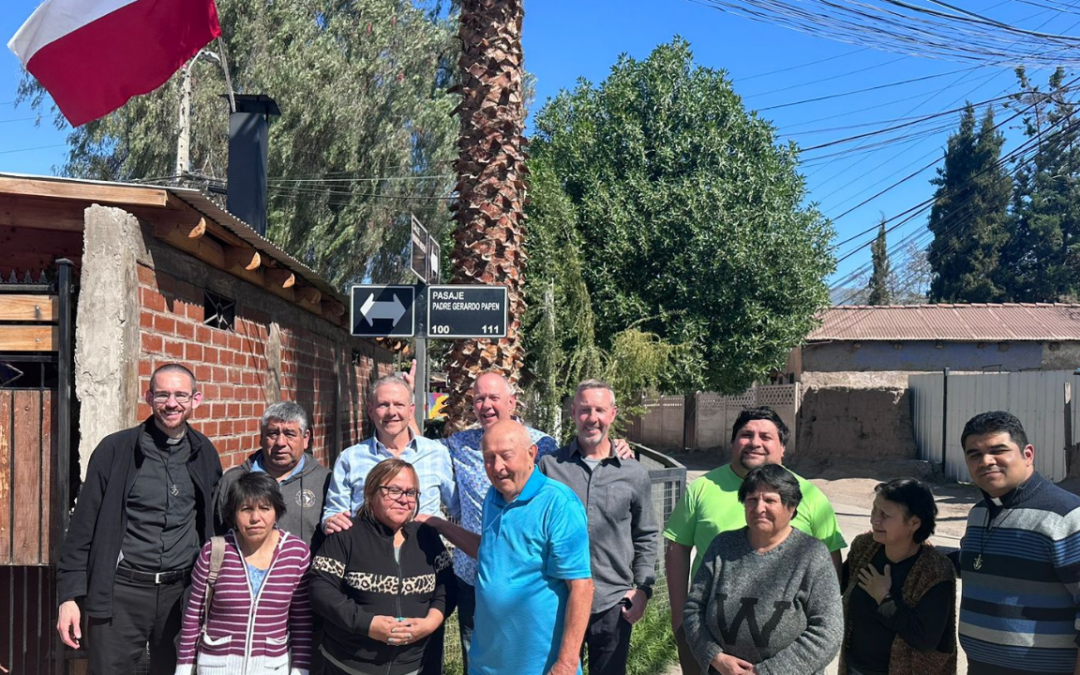Take, Lord, and receive all my liberty,
my memory, my understanding,
and my entire will,
all I have and call my own.
You have given all to me.
To you, Lord, I return it.
Everything is yours; do with it what you will.
Give me only your love and your grace,
that is enough for me.
The above is the Suscipe Prayer from Ignatius of Loyola. This prayer was a favorite of Father Moreau’s as well as a favorite of my novice master’s. As we prepared to take first vows, our novice master kept returning us to this prayer, as it spoke deeply of the animating spirit behind the religious vows. In our vows of poverty, chastity, and obedience, we offer to God all that we have and are. Through our vows, we lay down our lives as we know them and invite God to be the guiding Spirit for the whole of our lives, so that it may no longer be we who live, but Christ who lives in us.
Because of the role that the Suscipe prayer played in my discernment of and preparation for vows in Holy Cross, it has continued to be a prayer that I return to as I open myself to the movements of the Spirit in my life.
But just as I wrote about Scripture in an earlier post, sometimes I need reminders to draw me back to the wells of God’s inspiration. While among the Sadri-speaking tribal communities in the tea gardens of Bangladesh (Orao and Kharia communities primarily), I heard a song that struck me at first for its melodic beauty. Since the language of the song is different than Bangla, I did not understand what the song was speaking of until later in my stay.
After a Mass in Mongra Bosti, I asked some of the students in the village to teach me the song and to explain the lyrics in Bangla. Here’s a couple verses from the song:
Shona nahi, rupa nahi
Shona nahi, rupa nahi
Lei ali ham hamar ja rahe
Le, le, le, le toi hamar dan
Le, le, le, le toi hamar dan.
(after two more verses)
Hamar jio, hamar atma
Hamar jio, hamar atma
Lei ali ham toke deowek le
Le, le, le, le toi hamar dan
Le, le, le, le toi hamar dan.
The meaning of the lyrics is along these lines:
We have no gold; we have no silver.
But take and receive what I have to offer.
Take, take, take, take my offering.
My life, my spirit,
Take what I can give you.
Take, take, take, take my offering.
The song was a Suscipe written from the experience of their lives. The song was meaningful for the people of Mongra Bosti and the surrounding area because it represented their situation in poverty and offered them a way of laying all of their lives before God. Although they are poor in terms of the riches of this world, they have their very lives and spirits to offer to God. And as they sing this song during the offertory of the Mass, the people are recognizing that God is the one who has given them all that they have and are, and they offer their very selves back to God.
Now I still pray with the Ignatian Suscipe, but I also pray and sing this Sadri Suscipe as an offering to God of my very life and spirit.
Published on December 15, 2023




